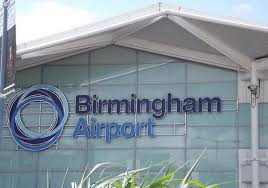Year on year increase as new routes added to schedules.
Birmingham Airport handled almost 12.7 million passengers in 2019, an increase of 1.6% on the previous year.
In 2019, the airport served a total of 12,639,340 passengers, with the best performing months in comparison to the previous year including; January, with a total of 781,282 passengers (+4.76%), April, with a total of 1,002,951 passengers (+4.21%) and July, with a total of 1,352,392 passengers (+3.06%). The busiest month overall was August, when over 1.4 million passengers were recorded in the month.
Scheduled passengers accounted for 83% of the 2019 total, with the remaining 17% travelling on charter services.
The top three routes of the year were Dublin, Dubai and Amsterdam, with Dublin serving almost a million people over the twelve months.
Several additional routes were introduced throughout 2019, including; Marsa Alam in Egypt, Krakow in Poland, Burgas in Bulgaria, Bodrum in Turkey, Edinburgh and Glasgow in Scotland and Vienna in Austria. Jet2.com and Jet2holidays increased capacity on its network to Antalya, Lanzarote, Fuerteventura, Gran Canaria and Tenerife and TUI added more capacity to Lanzarote, Hurghada, Gran Canaria and Tenerife.
Nick Barton, CEO at Birmingham Airport, said: “2019 saw our 80-year milestone, where we hosted celebrations with our local communities to mark the special birthday.
“On the whole, we saw monthly passenger growth in 2019. Despite the loss of Thomas Cook in the latter part of the year, we experienced a 1.6% passenger increase overall and we’ve been delighted to see airlines grow capacity from Birmingham.
“Looking forward to 2020, we’ve commenced work to extend our departure lounge by 45%, adding more space, seating, shops and restaurants. Opening in the early part of next year, it will provide a spacious and modern environment that helps cater for the forecast growth in passenger numbers, and is the biggest terminal investment we’ve made in ten years, costing £30m.
“We are also revising our existing carbon management plan and developing a roadmap, setting and prioritising carbon reduction objectives that will help meet our ambition to be a net-zero carbon airport by the year 2033.”
